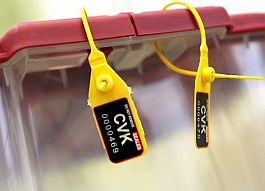Analytics, Baltic States – CIS, EU – Baltic States, Financial Services, Latvia, Legislation
International Internet Magazine. Baltic States news & analytics
Monday, 03.11.2025, 01:24
AFP: alarm over Russia overshadows Latvia election
 Print version
Print version |
|---|
Russia's annexation of Crimea and meddling in eastern Ukraine have sent shudders through this NATO, EU and eurozone member of two million people, the AFP points out. Many have vivid memories of Soviet times that ended here just a quarter century ago. And amid Europe's worst standoff with Russia since the Cold War, there is real fear that Moscow could attempt to destabilize its Soviet-era Baltic backyard.
"This country has been invaded several times by its neighbor and for many people, it's still within living memory," Ojars Kalnins, chief of the parliament's foreign policy committee told AFP, adding that "rhetoric now coming out of Moscow contains numerous threats directed at the Baltic States."
A 63-year-old technocrat, Prime Minister Laimdota Straujuma has demanded more NATO troops and extra air patrols in this region bordering Russia.
The SKDS pollsters show her four-party coalition could return to power with 61 seats, down from its current 66 in the 100-member parliament.
Her pro-Kremlin leftist rival, Riga mayor Nil Ushakov, head of the opposition Harmony party, raised eyebrows last month when he said that given the choice of politicians in Russia, "the best thing possible right now is President Vladimir Putin."
Pollsters say Harmony, which is allied with Putin's United Russia party, could score 24 percent support, mainly from the ethnic Russian minority accounting for a quarter of the population.
Analysts however insist it is never likely to govern.
"Since independence was regained in 1991, all Latvian governments have been composed of varying (majority)... coalitions representing ethnic Latvian interests," University of Latvia Professor Daunis Auers told AFP. "Russophones are the permanent political opposition and are likely to remain so even after the 2014 parliamentary election."
Reports that a handful of ethnic-Russian Latvian citizens joined pro-Moscow rebels in eastern Ukraine have raised questions about the loyalty of the Russian minority.
The men hail from an area on the Russian border near the town of Rezekne. Its population of 35,000 is split evenly between Latvians and ethnic Russians. This is one of the EU's poorest regions. Wages are low and joblessness runs at 18 percent. But hardship breeds pride and hackles go up at the slightest suggestion of disloyalty.
"I'm proud of being Latvian and I'm proud of my Russian heritage," town spokeswoman Marina Sokolova told AFP. "Of course there are extremists in any community, but how can we be disloyal? ... We're more loyal than all those people who left Latvia to work abroad," she said, pointing to the exodus of some 233,000 jobseekers after EU entry in 2004.
Harmony may win votes here, but its local candidate insists Latvia wins hearts. "If anyone ever did come across the border (local residents) would be the first to take up arms and defend Latvia," Andrejs Elksnins told AFP.
Erika Teirumnieka, his right-wing rival, says NATO gives residents some peace of mind. "I don't know what would have happened if we weren't in NATO, but we can probably look at Ukraine for the answer," she told AFP.
Latvia made a spectacular recovery from the world's deepest recession in 2008-9, when output shrank by nearly a quarter amid the global financial crisis. A painful austerity drive then paved the way for eurozone entry this January. The sacrifices paid off and growth here topped the 28-member EU for a third consecutive year in 2013, with a 4.0 percent expansion, the AFP points out.
Forecasts had earlier pointed to nearly five percent growth this year, but the escalating sanctions war between the EU and Russia over the Ukraine crisis could hit the Baltic region hard, which is reliant on Russian trade, transit, warehousing and tourism.
Rezekne residents Miks Balodis, 31, and Ieva Blumene, 30, point to economic security as another decisive factor on voting day. "I want to see people in parliament who support economic development," Blumene told AFP, with friend Balodis looking for "stable economic development and open politics".








 «The Baltic Course» Is Sold and Stays in Business!
«The Baltic Course» Is Sold and Stays in Business!

